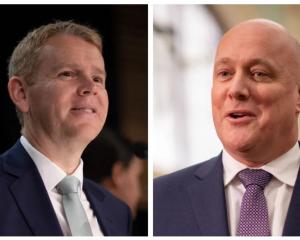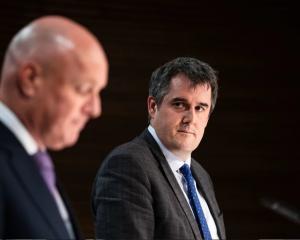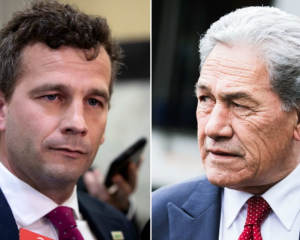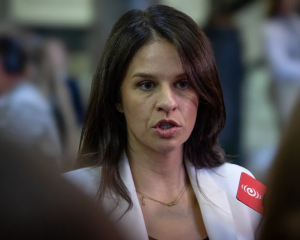"It's total politics and costly point scoring," she said last night.
She slammed a call by John Key to wait until the Australian scheme was developed, saying New Zealand had not followed Australia over the Iraq war or when it originally dragged its feet on Kyoto.
The Government was never relying on National's support for the scheme and would continue with cross-party talks to try to get it passed, she said.
Mr Key yesterday said National would not support the second reading of the Bill when it came out of select committee - due on June 10.
He said National had not given up on the scheme, but wanted to slow down the process even if that meant taking it beyond the election, which must be held by November 15.
He set out six areas in which National had concerns, including the potential for a Government to unduly line its own coffers through the scheme, and the fact that New Zealand was developing a scheme ahead of Australia.
National wanted a fiscally-neutral scheme.
He said the timetable of the present Bill was rushed and "reckless".
He wants any major changes to the scheme, tabled later by the Government, to be sent back to the select committee for public hearings.
Miss Clark, who has just returned from a trip to Japan and South Korea, said last night: "The longer we delay, the greater the cost to taxpayers.
''The longer we delay, the more the National Party wants to force the cost on to the general public than on to emitters."
Under an international agreement, New Zealand will be faced with a bill at the end of the first five-year Kyoto commitment period, in 2012, the size of which will depend on how far short it has fallen of its commitment to reduce its carbon emissions to 1990 levels.
The way each country reduces its emissions is over to it: the emissions trading scheme is a financial incentive to reduce pollution, making big emitters buy permits to emit carbon, and rewarding them with credits if they come under target which can be on- sold to those who need permits .
The big emitting companies will either absorb the costs themselves or, more likely, pass on the extra cost to their customers, such as oil companies to motorists.
Exporting sectors, such as agriculture, are being given more favourable terms on which to join the scheme.
New Zealand's overall 2012 liability is regularly assessed and two weeks ago it was assessed downwards from over $1 billion to $481 million.
Miss Clark said yesterday after Mr Key's speech that a delay in the start of the scheme - and effectively delaying reduction in emissions - would increase New Zealand's liability.
"The forward projection of the fall of the New Zealand liability in the first commitment period is in no small part due to them forecasting in the effects of the ETS, so the greater you delay, the greater the cost to the Kiwi taxpayer."
Under pressure over already soaring petrol prices, Miss Clark two weeks ago announced a delay to the liquid transport fuels entry to the scheme, from January 1, 2009, to January 1, 2011.
She denied it had been rushed: "The classic thing when people really don't want to vote for something but are grasping for excuses is to claim it is rushed."
Climate Change Minister David Parker said the ETS would not result in a surplus of credits for the Government in the short term "and any surplus that might result in future decades depends upon New Zealand's target under future international agreements".
The five-yearly reviews would take care of that.
All of the other concerns had been or were being addressed.
Business NZ chief executive Phil O'Reilly welcomed Mr Key's new position, saying National's policy "appears to have taken account of concerns expressed in select committee".
Greens co-leader Jeanette Fitzsimons condemned Mr Key's approach as having "all the urgency of a methane- emitting cow chewing its cud".
The party would wait to see what improvements it could make to the ETS before deciding whether it could support it further.
She said it needed to be more effective, with agriculture taking some responsibility sooner.
It needed to be fairer on small and medium-sized business - which missed out on free permit allocations.
Mr Key also announced that National would vote against the Biofuels Bill, which phases in mandatory levels of biofuels in petrol and diesel from July 1.












